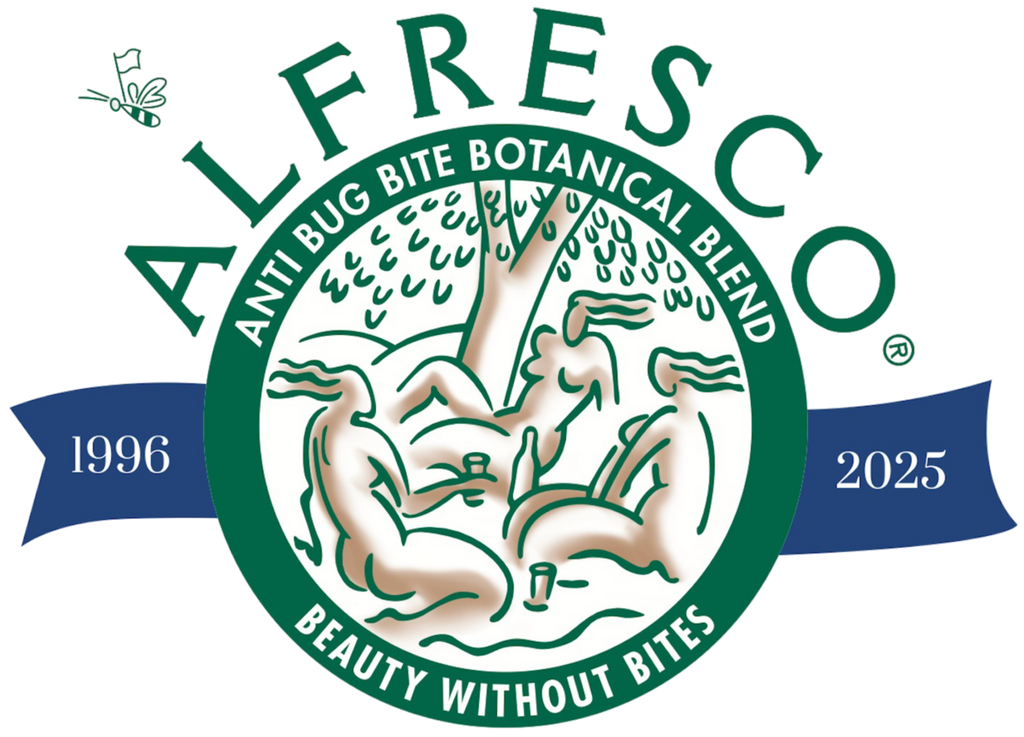How to Choose Insect Repellent for Babies & Children
Whether you’re off on holiday or just enjoying summer here in the UK, it’s crucial to protect your little ones from nasty insect bites, which can range from a mild irritant to potentially causing very dangerous diseases. So, how do you know which insect repellents to choose for young children and babies? Check out our handy guide below to find out.
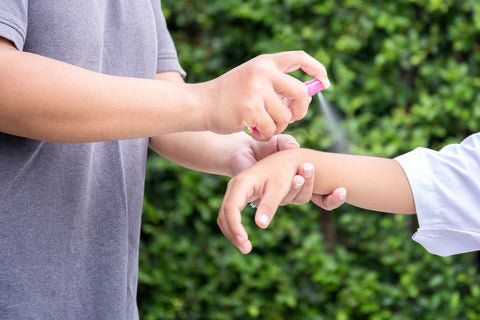
Natural or Synthetic Repellent?
Insect repellents come in all shapes and sizes, whether they be sprays, aerosols, liquids, creams or sticks, but the key debate is over whether it’s best to use natural or synthetic moisturisers repellents for your children.
DEET
In particular, there’s much debate over the use of the synthetic active ingredient ‘DEET’ (N,N-Diethyl-meta-toluamide). Some experts say that DEET is one of the most effective ingredients out there when it comes to insect repellents, although others have cast doubt on this, claiming that DEET can have a harmful effect on the skin, especially on that of children. On the whole, DEET is safe, but there are still concerns, especially when it comes to children. It’s recommended that repellents containing DEET shouldn’t be used on children under the age of two months old and for those between ages 3-12, products with a DEET concentration of no more than 15% should be used and should only be used on a restricted area of the skin. Recent studies have also suggested that mosquitoes are starting to become desensitized to DEET after their first exposure, which is why many turn to a more natural alternative.
Natural Alternatives
The potential dangers surround DEET are a large part of the reason why we chose to make Alfresco an all-natural product. Using a blend of essential oils, our creations provide long-lasting protection from the bugs, but while being a lot kinder to skin than repellents containing DEET, which is great when protecting children and babies from insects. Natural insect repellents make use of various active ingredients derived from essential oils found in plants such as citronella, cedar, eucalyptus, soybean and more. Unlike DEET, these natural oils also won’t cause any damage to plastics or clothes and (again, unlike DEET), they also have a pleasant scent. Natural insect repellent products such as the Alfresco range, are perfectly safe to be used on babies and small children. But if you are concerned about their skin being sensitive, we recommend applying a little behind the knee before first use, just to see if there is any sensitivity. While some believe that natural alternatives aren’t as effective, this is a myth, with natural repellents such as Alfresco proving to be just as effective as their DEET equivalents, just ask our customers!
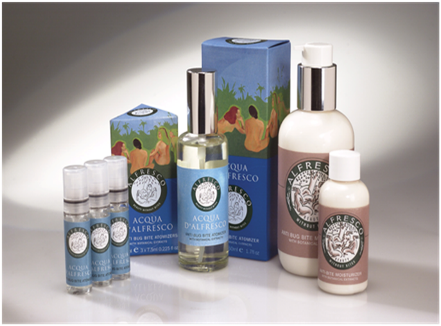
Application of Insect Repellent
When you’re looking at different types of repellent, be sure to note the concentration of the active ingredient used. The higher the concentration, the longer you’ll be able to leave the repellent before reapplying. So always be sure to check the instructions of the product that you’re applying to your child or baby as the length of time they’ll be protected for, will depend on the active ingredient being used and the concentration of that ingredient. Generally speaking, natural repellents such as Alfresco will need to be reapplied more frequently than synthetic ones, but again, check the label so you know for sure. Also, bear in mind that if your kids are going to be playing in a swimming pool are any other water, then this will wash the repellent off, so you’ll have to reapply a thin layer when they come out. Any repellents which are strong enough to be unsafe for children, should clearly state this on the bottle too. In terms of the type of application (sprays, sticks etc.) it really comes down to the personal preferences of you and your children. Many find that sticks and roll-on repellents are easier to apply to children, but it’s up to you. Whichever type you choose, be sure to help your children apply it or I they’re slightly older, supervise them while they apply it.
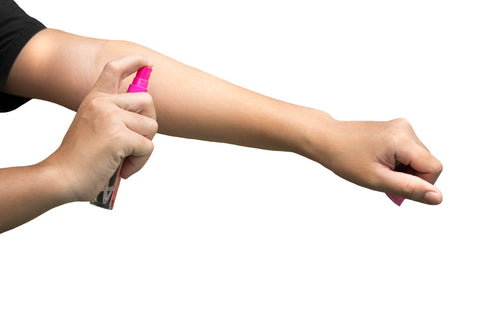
Ineffective Insect Repellents
It’s also a good idea to stay clear of some of the other touted methods which claim to help keeps bugs away from your kids. According to a recent study, some of these, can actually wind up doing more harm than good to your children! These include:
- Garlic/Vitamin B
- Ultrasonic devices which emit high-frequency sounds
- Electric bug zappers
- ‘Mosquito bands’
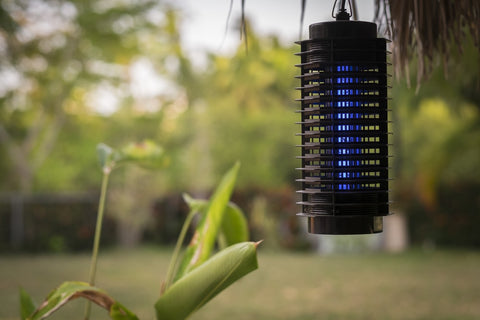
Top Tips for How to Use Insect Repellent
- Only apply your insect repellent to your child’s exposed skin or the outside of their clothes, never underneath the clothes.
- Never apply insect repellent to children under two months old.
- Never spray the repellent directly onto your children’s face. Spray it onto your hands instead and then rub it into their face, avoiding the eye and mouth.
- Be sure to apply repellent in an open area so that your children don’t accidentally breathe any of it in.
- The remove repellent, wash your children’s skin with soapy water and be sure to wash any clothing which has been treated with repellent before they wear it again.
- Don’t spray repellent on damaged or broken skin.
- Apply just enough to cover the skin/clothing. A thin layer is all that’s needed and any extra will not increase the effectiveness of the repellent.
- Don’t purchase sunscreen/insect repellent combinations. Instead, apply the two separately, applying sunscreen first.
- If your child suffers a rash or any other kind of adverse reaction to an insect repellent, stop using it immediately and wash their skin with soapy water and if it gets worse, take them to see a doctor.
Other Ways to Protect Your Children From Insect Bits
While a good insect repellent is the best way to prevent your children from being bitten, there are other steps that you can take to help keep them safe. For example, if you know your child is going to be playing somewhere they’re likely to come into contact with insects, dress them in lightweight long sleeved clothing or with their legs covered and consider using mosquito netting over a baby’s pram or pushchair. Avoid things which could attract insects to your children such as bright clothing or heavily scented perfumes, soaps or hair products. And when your kids do come in at the end of the day, be sure to give them a quick check over to ensure that they haven’t picked up any bites while they’ve been out.
